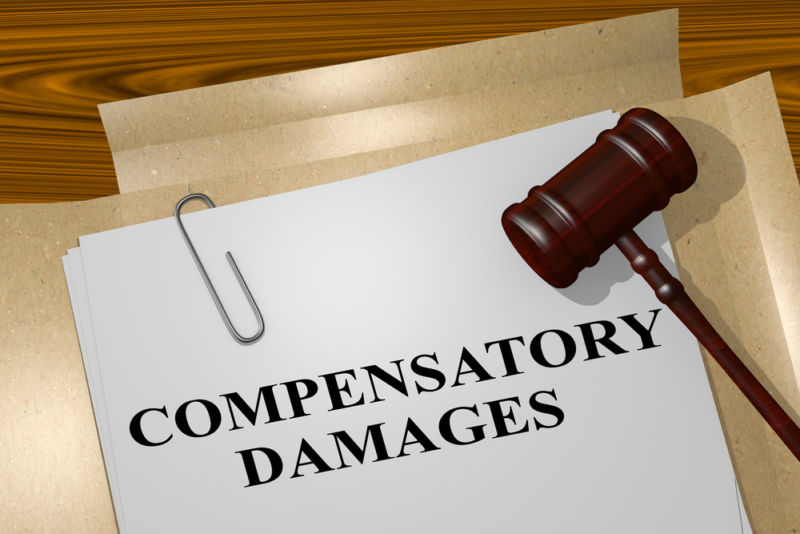Compensatory damages are funds awarded to a plaintiff in a civil case—such as a personal injury lawsuit—to compensate them for their injuries and damages. In many cases, attorneys and other members of the legal community simply refer to this compensation as “damages.”
The purpose of compensatory damages is not only to provide the plaintiff with fair financial compensation for their losses, but to make the plaintiff “whole” again by replacing or restoring what they lost.
For help getting the compensation you deserve after an accident in New York, contact Gacovino, Lake & Associates, P.C., today at 631-600-0000.
What Items Do Compensatory Damages Cover?
In a personal injury case, compensatory damages cover costs that the injured plaintiff may have incurred in treating their injury—such as emergency room or hospital bills, costs for doctor visits, medical testing, medications, and physical therapy.
If the plaintiff sustained long-term injuries or permanent impairment, the at-fault party must also pay for future medical care costs. They may also have to pay for orthopedic devices—like crutches or wheelchairs—and the cost of personal care if the plaintiff cannot care for themselves.
If the plaintiff lost a digit or limb or became paralyzed due to the defendant’s actions, compensatory damages may include the legal value of the lost body part or functionality.
If the injured person missed work because of their injuries, the defendant may have to compensate them for their lost wages. If they cannot return to work, these damages may also include the estimated value of future lost wages as well as the loss of earning potential.
The at-fault party may have to pay damages to the plaintiff for their pain and suffering, emotional distress, or loss of life enjoyment.
Finally, compensatory damages also cover the plaintiff’s property damages, which may include sums to repair or replace their car or any other personal property damaged or destroyed during the accident.
Who Pays the Compensatory Damages in a Personal Injury Case?
In a civil lawsuit, the defendant bears the responsibility for paying compensatory damages. If the defendant has insurance coverage, the insurer typically pays the damages directly to the plaintiff. This may also occur through an out-of-court settlement.
Depending on the type of personal injury accident, different parties are responsible for paying compensatory damages:
- In a car accident settlement, the driver or drivers whose negligence caused the crash must pay these damages;
- In a medical malpractice case, the negligent doctor must pay damages;
- For a dangerous drug or faulty medical device case, the manufacturer typically bears that responsibility;
- In a product defect case, compensatory damages may fall to the product’s designer, manufacturer, distributor, or retailer; and
- In a slip and fall case, the property owner or manager must compensate the injured party for their losses.
In each of these examples, the person or entity responsible for paying damages has one thing in common: Their negligence resulted in the plaintiff’s damages.
How Does Negligence Apply to a Personal Injury Case?
To get compensatory damages in a personal injury case, we must demonstrate the four legal elements of negligence as they relate to the defendant.
Duty of Care
The defendant had a duty of care to the plaintiff. For example, in a car accident case, the at-fault driver had a duty of care to other motorists on the road as well as to pedestrians, bicyclists, and the general public. In a dangerous drug case, a drug’s manufacturer owes a duty of care to patients to conduct tests to ensure that the medication is safe for use.
Breach of Duty
The defendant breached their duty of care to the plaintiff. For example, if a driver got behind the wheel after having a few drinks or looked away from the road to check a text message, they breached their duty of care. If a drug manufacturer failed to conduct adequate tests to verify a medication’s safety, they violated their duty of care when they made the drug available to the public.
Causation
The defendant’s breach of duty caused the plaintiff’s injuries. For example, a driver sending a text instead of watching the road may rear-end another driver or collide with a bicyclist. A drug manufacturer who failed to conduct adequate clinical testing may not understand the medication’s danger until patients start to report serious side effects.
Actual Damages
To prove actual damages, we will provide copies of doctor and medical bills, wage statements, car repair bills, and other receipts showing your costs. To document future costs, we will use testimony from medical professionals, earnings data, and other documentation as appropriate.
Are There Other Kinds of Damages?
In addition to compensatory damages, the courts sometimes award punitive damages. The court awards punitive damages specifically to punish the at-fault party for intentionally reckless or dangerous behavior. Punitive damage awards also serve to warn others who may commit the same type of transgression.
The Attorneys at Gacovino, Lake & Associates, P.C., Can Help You Get Compensation.
If you suffered serious injures due to someone’s negligence, let the personal injury lawyers at Gacovino, Lake & Associates, P.C., help you obtain compensatory damages. Contact us today at 631-600-0000 to learn more.
